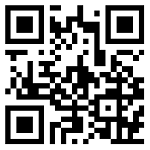提醒:点这里加小编微信(领取免费资料、获取最新资讯、解决考教师一切疑问!)
(14)hear、hear of、hear from、learn的用法: hear“听说”,后面可以跟名词、代词、从句表示听见的内容,hear of“听说”,后面跟人,指对某人有耳闻但没有见过面;hear from“收到……的来信”,后面加人;learn“听说、得知”,后面跟从句,含义与hear相似。如:I hear Mr. Green is coming to see us tonight. (我听说格林先生今晚要来看望我们)/ Have you ever heard of the man who once went to the Himalaya Mountains? (你是否听说过那个去过喜马拉雅山的人?)/ How often do you hear from your father? (隔多久你收到你父亲的信?)/ He learned the musician himself was in town.(他听说音乐家本人就在城里)
(15)speak、talk、say、tell的用法:四个词与“说”有关。speak“讲话、发言、演说”,是不及物动词,涉及人时要加介词 to,speak作及物动词时后面跟语言名称;talk“谈话、闲谈”,是不及物动词,涉及人时用介词with、to等,涉及事情时后面跟介词about 等;say 是及物动词,后面跟名词、代词、从句等,表示说的内容;tell是及物动词,后面首先要跟人,然后再跟从句或者介词短语等。如:Do you speak English? (你讲英语吗?)/ Who spoke at the meeting? (谁在会上发了言?)/ Our teacher is talking to Lin Tao’s parent. (我们的老师正在跟林涛的家长讲话)/ Can you say it in English? (你能用英语说出它吗?)/ Please tell me something about the strange flying object. (请跟我讲讲那个奇怪的飞行物的事情吧)
(16)be able to(do)、can的用法:can是情态动词,有许多含义,表示“可能、可以、会”等意思,只有现在式can和过去式could两种形式;be able to表示能力上“会”,有多种时态形式,to后面跟动词原形,有时可以与can/could互换。如:Can you speak English? (你会说英语吗?)/ He couldn’t(wasn’t able to) swim when he was 12. (他十二岁时不会游泳)
(17)there be、have的用法:两个词都可以译为“有”,但是,have表示的是“拥有”,主语必须是人或者物;there be表示“存在”的概念,主语在there be之后。如:How many brothers and sisters do you have? I have only one brother. (你有多少兄弟?我只有一个兄弟。)/ How many chairs and desks are there in their classroom? There is none. (他们教室里有多少张桌椅?一张也没有。)
[注解]there be sb./sth doing与there be sb./sth to do 有所不同:用doing表示一个正在发生的事情,而用to do 则表示一个滞后或迟于there be的动作。如: Look! There is a dog lying on the stairway. / Take your time. There is nothing for you to do tonight.
(18)borrow、lend、keep的用法:表示“借”的三个词,borrow“借进”、lend“出借”都是一次性动作,不可以和表示一段 的时间状语连用;keep“保存”用来表示借一段时间。如: I have lost the book I borrowed from my teacher. What can I do? (我丢掉了从老师那里借来的书)/ How long have you kept my dictionary,eh?For more than two months! (呃,我的字典你借了多久了?两个多月了!)
提醒:点这里加小编微信(领取免费资料、获取最新资讯、解决考教师一切疑问!)









